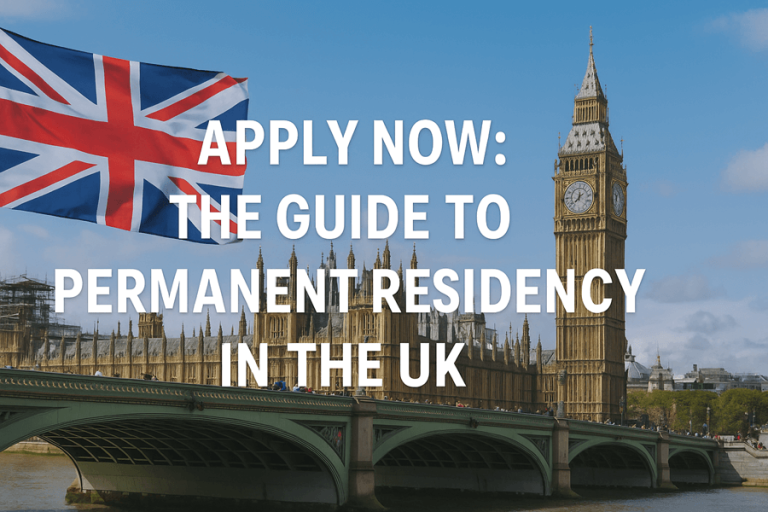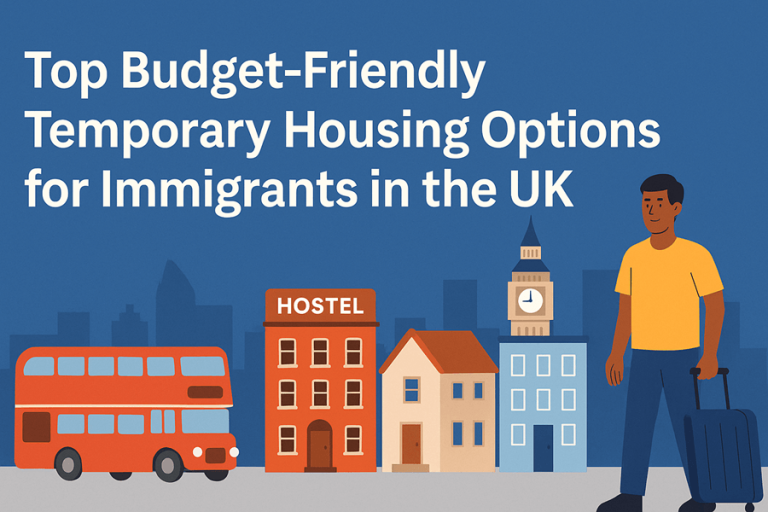How to Migrate to Canada without Hassle
Choosing to migrate to Canada is more than just moving countries—it’s choosing quality of life, diverse opportunities, and a welcoming environment. Canada is consistently ranked among the top countries for safety, healthcare, and education[^1^]. For many Africans, from Nairobi to Lagos, settling in Canada offers hope for a brighter future.
Fortunately, Canada migration doesn’t have to be a stressful or confusing process. The Canadian government has established several clear pathways—with transparent criteria, online systems, and multilingual support—designed to make the journey smoother.
This guide explores the most popular and hassle-free routes to migrate to Canada. We’ll explain each immigration program, eligibility requirements, and tips specifically useful for African applicants. The goal is to demystify the process and help launch your Canadian dream with confidence.
Exploring Canada Migration Pathways
Express Entry – The Fast Track to Canada Migration
Express Entry is Canada’s premier system for skilled immigrants. It manages three economic immigration programs:
- Federal Skilled Worker Program
- Federal Skilled Trades Program
- Canadian Experience Class
Applicants are ranked via the Comprehensive Ranking System (CRS), which awards points for age, education, work experience, language skills (IELTS / CELPIP), and adaptability. The highest-ranking candidates receive Invitations to Apply (ITAs) for permanent residence. Most applicants complete the process in 6 to 12 months.
Why it works for Africans:
- Language tests are widely available in African countries.
- Education equivalencies are clear via WES.
- No need for a pre-arranged job offer if CRS is high.
Provincial Nominee Programs (PNPs) for Canada Migration
All provinces except Quebec have PNPs that target specific industries and regional needs. These can include:
- Ontario Immigrant Nominee Program (tech and healthcare streams)
- Alberta Advantage (agriculture, oil, trades)
- British Columbia Tech Pilot
PNP pathways typically require a provincial nomination, which adds 600 CRS points to your Express Entry profile—a fast ticket to an ITA.
Atlantic Immigration Program
If you’re willing to settle in Nova Scotia, New Brunswick, PEI, or Newfoundland & Labrador, this program is an excellent option. It requires a job offer from a designated employer. It’s quite friendly for skilled workers and recent graduates, with less competition but solid job prospects.
Family Sponsorship: Reuniting Through Canada Migration
If you have a close relative who is a Canadian citizen or permanent resident, they can sponsor you:
- Spouses and common-law partners
- Dependent children
- Parents and grandparents
The program is well-established and predictable. For example, if your sister lives in Toronto, she could sponsor your permanent residence and streamline your move.
Study and Stay: A Popular Canada Migration Route
Many Africans use Canada’s post-graduation work permit (PGWP) to transition into permanent residency.
- First, obtain a study permit and complete a degree or diploma at a Designated Learning Institution (DLI).
- Then apply for a PGWP, valid up to 3 years.
- Combine PGWP work experience with Express Entry to migrate to Canada permanently.
This is a proven pathway. For instance, Fatima from Accra studied in Montreal, worked in healthcare, and a year later qualified for permanent residency.
Important Requirements for Canada Migration
Language Proficiency
Whether you’re using Express Entry or a PNP, you need English or French language results:
- IELTS (minimum 6.0 or 7.0)
- CELPIP
- TEF/TCF for French proficiency
Higher scores earn more CRS or PNP points.
Educational Credentials
Have your credentials assessed (e.g., via WES) to confirm that your degree matches Canadian standards. This step is mandatory for Express Entry and many PNPs.
Work Experience
Paid, full-time work experience in NOC 0, A, or B occupations strengthens your Express Entry profile. Provincial programs also often require job experience in specific fields.
Settlement Funds
You must prove you have enough money to support yourself and your family unless you have a valid job offer or are already working in Canada.
Clean Background and Health
You’ll need medical exams from CIC-approved physicians and police certificates to show you’re admissible under Canadian law.
Step-by-Step Guide to Migrate to Canada Easily
1. Select Your Preferred Pathway
Start with Express Entry if you have the necessary qualifications. Consider a PNP if you’re open to living outside major cities or if your CRS score is borderline.
2. Prepare Required Documents
Include language test results, ECA, job history, and police certificates. African applicants should begin this cleanup early to avoid delays.
3. Create an Online Profile or Expression of Interest
- If using Express Entry, complete your profile and wait for an ITA.
- If PNP, submit an Expression of Interest (EOI) and apply once nominated.
4. Receive an Invitation to Apply (ITA)
- Express Entry ITAs are issued monthly.
- PNP nomination allows you to add 600 CRS points and apply.
5. Submit Your Application
Complete the application for permanent residence, including biometrics, photos, and relevant fees.
6. Arrive and Start Settling In
Once approved, prepare for arrival. Canada’s friendly settlement services can help you with job search, banking, and community integration.
Unique Steps to Make Your Canada Migration Smoother
Optimize Your CRS Score
A strong CRS score (450+) is key. You can improve it by:
- Boosting language scores (IELTS 7+ equals +50–70 CRS points)
- Gaining additional work experience
- Getting a job offer or provincial nomination
Focus on In-Demand Occupations
Frontline roles in healthcare, IT, and trades are in demand. Alberta’s Tech Pathway and Ontario’s Human Capital Priorities stream regularly target these professions.
Take Advantage of Francophone Opportunities
Francophone candidates get additional points, even outside Quebec. Learning French opens many skilled migration doors.
Use Settlement Resources
Canada offers free tools such as pre-arrival webinars, job portals (jobbank.gc.ca), and multicultural community centres that assist with everything from resume writing to housing.
Real-Life Success Story: Amina’s Canada Migration Journey
Amina from Kampala had 5 years of trade nursing experience and a top IELTS 7. She was invited via Express Entry, completed her medical exam in 4 weeks, and received PR in 6 months. She now works at a Toronto hospital and enjoys family reunification under the sponsorship of her sister.
Common Mistakes to Avoid When You Migrate to Canada
- Using unverified immigration agents
- Submitting incomplete documents
- Incorrectly estimating CRS score
- Ignoring provincial opportunities
- Delaying PMC (police clearance) and medical exams
Stick to official sources like CRIC or consultant directories regulated by CICC.
Checklist to Migrate to Canada without Hassle
- Select your best pathway (Express Entry, PNP, Study, Family)
- Complete language test and ECA
- Clean up your work experience with accurate job documentation
- Prepare medical exams and police certificates
- Create Express Entry or EOI profile
- Track periodic draws or PNP invitations
- Submit after receiving ITA or nomination
- Plan your arrival and access settlement support
Conclusion
Canada offers transparent, supportive immigration programs designed to help African migrants succeed. Whether via Canada migration pathways like Express Entry, Provincial Nominee, study, or family sponsorship, the road to permanent residency can be smooth with good preparation.
Use official resources to fine-tune your application, and consider registering with regulated consultants for added confidence. With the right steps, your Canadian dream can move from possibility to reality—without unnecessary stress.





